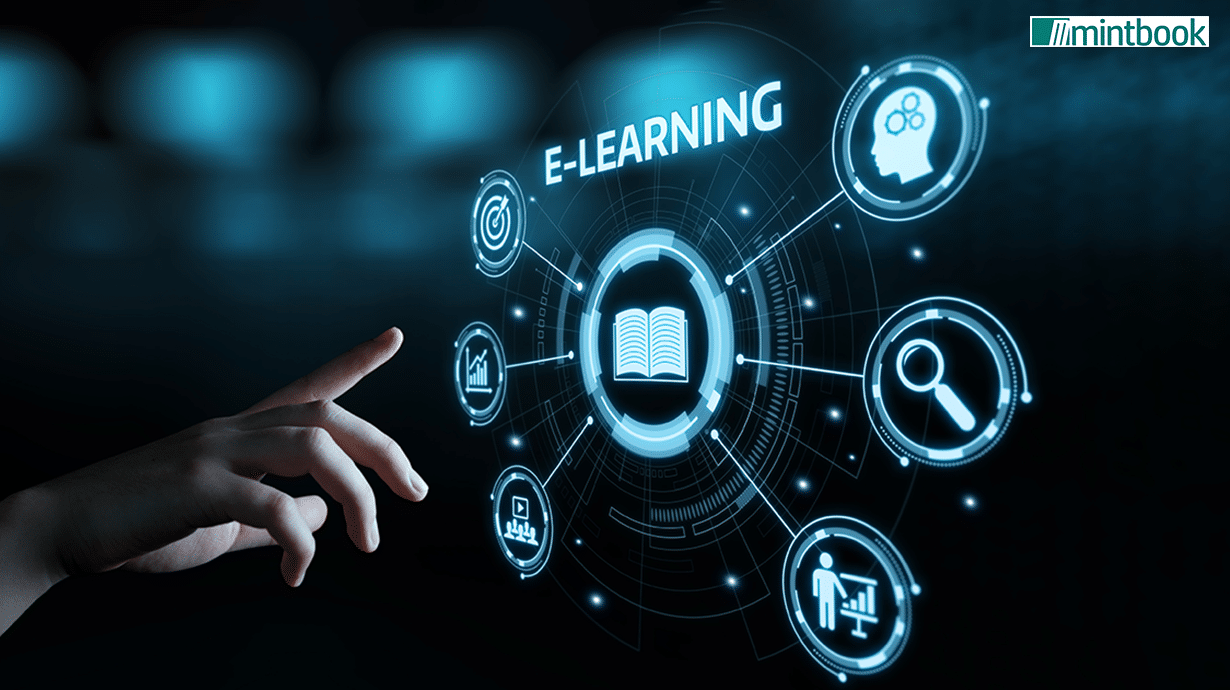Discovering the Importance of E-Learning for Kids in the Modern Educational Landscape
In today's quickly developing educational landscape, the importance of e-learning for children can not be overstated. E-learning platforms give exceptional access and flexibility, dealing with varied learning styles while cultivating important digital proficiency abilities. These systems incorporate interactive components that enhance engagement and promote important thinking, preparing students for future challenges. As we consider the transformative influence of technology on education, it is necessary to check out just how e-learning can better enhance learning outcomes and cooperation amongst young learners. What details benefits does e-learning offer that standard techniques may not, and how can these be maximized for optimum academic growth?
Advantages of E-Learning
E-learning uses numerous benefits for youngsters, transforming the method they acquire understanding and abilities. One of the primary advantages is access. E-learning platforms allow kids to accessibility educational content from basically anywhere, breaking geographical obstacles and helping with continual learning. This is especially beneficial for students in remote or underserved locations, guaranteeing they have equal opportunities to high quality education.

In addition, e-learning cultivates technological efficiency. As kids navigate electronic systems, they get crucial computer abilities and come to be proficient at utilizing various software and devices, which are vital in today's digital age. Additionally, e-learning can incorporate interactive components such as quizzes, videos, and video games, making the discovering experience extra enjoyable and interesting.
Furthermore, e-learning supports varied discovering requirements through adjustable content, satisfying specific choices and advertising inclusivity. In sum, e-learning supplies a functional, comprehensive, and appealing technique to modern education and learning.
Enhancing Knowing Outcomes
Building on the benefits highlighted, improving finding out end results via e-learning is a diverse venture that leverages innovation to enhance academic effectiveness. E-learning platforms offer customized discovering experiences, enabling for customized training approaches that deal with private pupil needs. Adaptive knowing innovations evaluate trainee performance in real-time, providing instant comments and adjusting the difficulty of tasks accordingly. This guarantees that pupils stay involved and tested, promoting a much deeper understanding of the product.
Additionally, e-learning assists in accessibility to a large variety of resources, including interactive simulations, academic video games, and multimedia web content. These tools can elucidate intricate principles and make finding out even more appealing, thereby enhancing retention prices. The combination of analytics additionally enables educators to track progress, recognize finding out spaces, and execute targeted interventions.
Partnership and communication are additionally considerably enhanced with e-learning. Online class and conversation forums offer opportunities for peer interaction and collective problem-solving, which are crucial for reinforcing learned ideas. Furthermore, the adaptability of e-learning enables for asynchronous knowing, accommodating different discovering speeds and schedules.
Fostering Vital Assuming
While boosting finding out results is a considerable benefit of e-learning, an additional extensive effect depends on its capability to promote critical reasoning among pupils. E-learning systems commonly integrate interactive tasks, simulations, and analytic jobs that call for students to examine details, examine various outcomes, and make reasoned decisions. These tasks exceed rote memorization, encouraging students to engage deeply with content and apply their knowledge in practical situations.
In addition, the self-paced nature of e-learning encourages pupils to discover topics at their own speed, promoting a reflective strategy to learning. This autonomy enables learners to question assumptions, look for added sources, and attract connections between various ideas, therefore nurturing an attitude tailored towards critical analysis.
Furthermore, e-learning devices usually consist of joint attributes such as discussion forums and group jobs, which even more promote important thinking. Involving with peers in an electronic setting calls for trainees to articulate their ideas plainly, consider alternate point of views, and construct proven disagreements. These communications are important in developing crucial believing skills that are necessary for academic success and future professional ventures.
Hence, e-learning attracts attention not only for its capacity to improve educational outcomes however likewise for its substantial role in creating crucial, independent thinkers.
Digital Proficiency Skills
How can trainees prosper in an electronic globe without mastering digital proficiency skills? In today's technology-driven period, electronic proficiency has actually emerged as a cornerstone of modern-day education. It includes a wide range of competencies, from browsing the web and making use of software program applications to recognizing on-line safety and ethical behavior. As e-learning ends up being significantly common, the requirement for students to establish these skills can not be overemphasized.
Digital literacy allows pupils to effectively situate, examine, and make use of details, fostering an atmosphere conducive to self-directed learning. It likewise furnishes them with the ability to recognize credible sources from undependable ones, an important skill in an age where false information is rampant. By familiarizing themselves with digital tools, trainees can improve their imagination and partnership via numerous on-line platforms and multimedia projects.
Very early exposure to these skills with e-learning platforms placements pupils to be competitive in a global job market. Incorporating electronic literacy right into the instructional curriculum is not merely helpful however crucial for nurturing well-rounded, future-ready citizens.
Future of Education
As her response we stare into the future of education, it comes to be apparent that technical innovations will certainly play an essential role in forming the learning landscape. E-learning platforms are readied to evolve, coming to be a lot more individualized and interactive, dealing with the unique demands of each student. Synthetic Knowledge (AI) will likely be at the center of this improvement, making it possible for flexible learning experiences that can determine and address individual strengths and weak points in real-time.

On top of that, the universality of net accessibility will assist in international classrooms, breaking down geographical obstacles and promoting cross-cultural understanding experiences. This connectivity will certainly make it possible for trainees from varied backgrounds to work together, promoting a much more thorough and comprehensive instructional experience.
However, these improvements additionally demand a concentrate on digital citizenship and cybersecurity. Educators and policymakers should collaborate to make certain that kids are outfitted with the abilities to browse this electronic world sensibly and safely. The future of education, therefore, hinges on balancing technological advancement with moral factors to consider.
Conclusion
E-learning's integration right into modern education is important, using boosted accessibility, more information personalized learning experiences, and cultivating critical reasoning. The dynamic nature of e-learning addresses diverse learning styles and involves pupils interactively, guaranteeing they are outfitted with needed skills for future challenges.
E-learning platforms supply individualized finding out experiences, permitting for customized instructional approaches that provide visit their website to specific trainee needs.While enhancing finding out results is a significant advantage of e-learning, one more profound influence exists in its capacity to foster crucial reasoning amongst students. As e-learning comes to be significantly common, the need for students to establish these abilities can not be overstated.
Very early exposure to these abilities with e-learning platforms placements students to be competitive in an international task market. The dynamic nature of e-learning addresses varied discovering styles and involves trainees interactively, guaranteeing they are outfitted with required abilities for future difficulties.
Comments on “Why Education and Study for Children and Kids is Critical for Development”